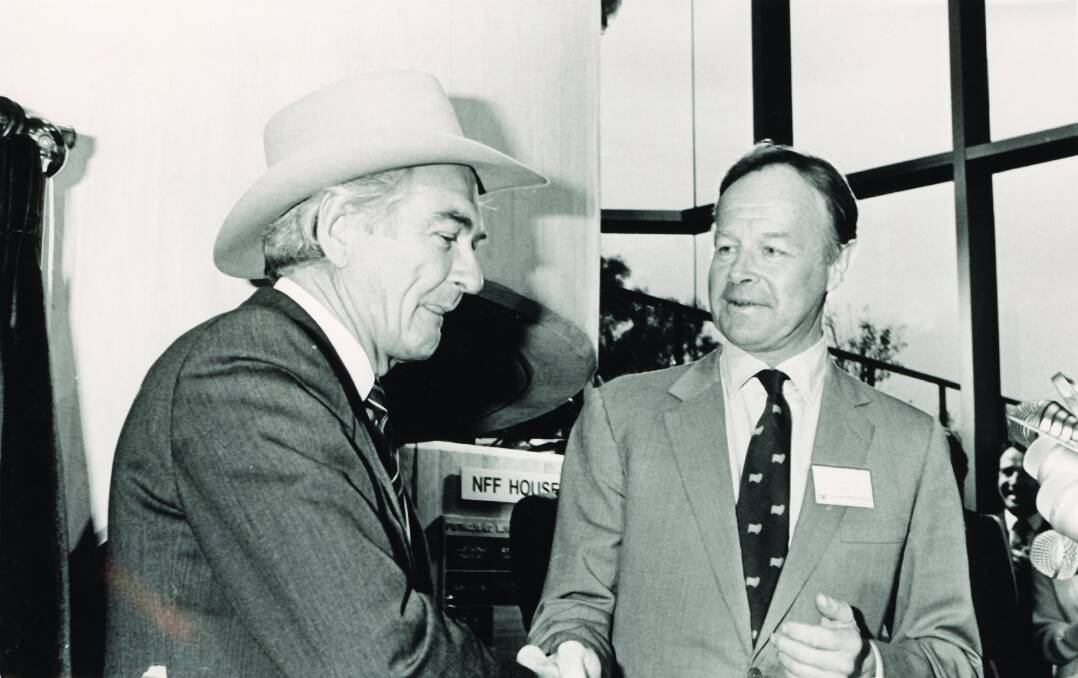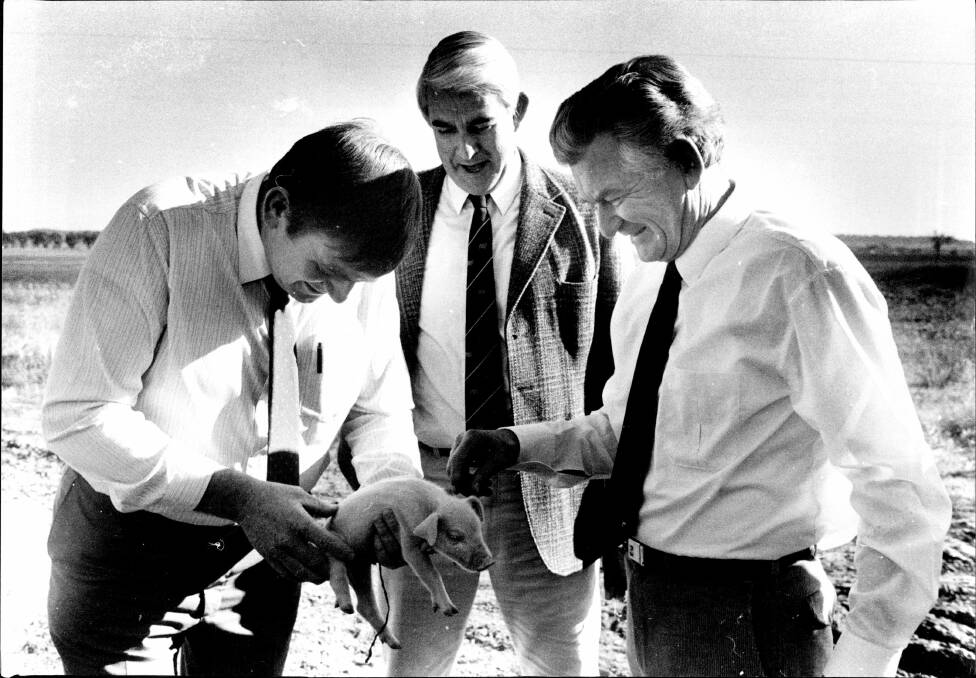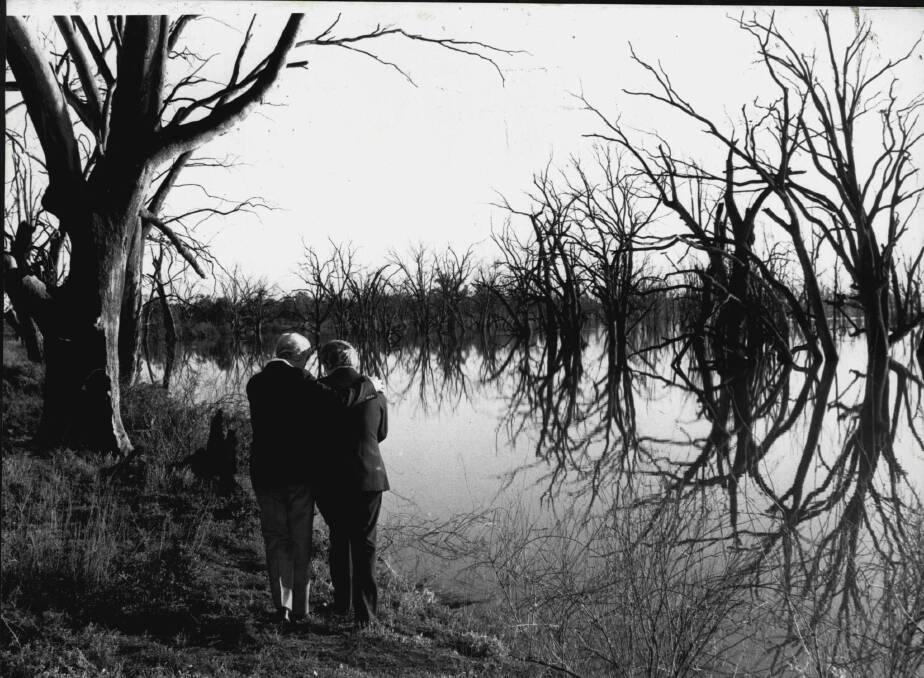
The Hawke Government had a tumultuous relationship with the farm sector in the mid-1980s at a time when producers were being squeezed by high costs, rising debt and soaring interest rates.
Around 45,000 angry farmers marched on Parliament House in Canberra on July 1, 1985, to protest against proposed tax reforms including capital gains and fringe benefit taxes.
The National Farmers' Federation was being led at the time by hard-nosed South Australian grazier, Ian McLachlan, who had little time for unions - Mr Hawke's power base - and had scuttled attempts by unions in 1978 to stop live sheep exports and foiled their attempts to ban wide combs in the shearing industry a few years later.
Related reading:
A group of seven leading Canowindra farmers from the NSW Central West added more fuel to the fire when they arranged for the dumping of about 25 tonnes of wheat in front of old Parliament House in Canberra on December 30, 1985.
The incident caused traffic chaos in Canberra but Prime Minister Hawke won plenty of admirers when he visited Canowindra on May 31, 1986, with his Primary Industry Minister, John Kerin, to confront his critics in the town's school hall.
Speaking today to Farmonline, Mr Kerin said whether people in the bush recognised it or not, the Hawke Government achieved "a heck of a lot" for rural Australia.
"That centred on reform to research organisations, and agricultural marketing," he said.

"We also were able to explain to farmers and graziers that we just don't live under a production ethos, there are also social and environmental elements to consider.
"We were able to put forward a more balanced view than purely agricultural fundamentalism.
"(Bob) Hawke was a great delegator and once he knew I wanted to be involved in as much reform as possible he kept out of my way. I went through some crisis, but he was always there to support me."
Mr Kerin said Mr Hawke's legacy was that reform was possible, provided politicians didn't respond to fear.
"We weren't all that worried if things we controversial, we always took the long term view.
"It wasn't as if we had total zeal for deregulation. We (the Hawke government) had little choice but to adapt to the changing situation and we did seize the nettle on deregulation."
Mr Kerin also sited the Hawke government's creation of a rural and regional affairs unit as valuable legacy achievement, which created Farmsafe, debt mediation and the Rural Health Alliance.
"We did a lot of things to advance women in the bush... that sort of thing simply didn't happen way back in the '80s. The prevalence of women in rural affairs now shows very small programs can catalyze change."

Labor's current Agricultural spokesperson, Joel Fitzgibbon, said Bob Hawke's charismatic personality allowed him to sell reform proposals where others might have been unsuccessful.
"Their significant reform agenda gave birth to Landcare, introduced the still existing RDCs (Research Development Corporation) - with the important part being the co-funding model, which saw important research to grow sustainable profitability for the sector.
"The Hawke Government also introduced the Rural Financial Counselling Service, was the architect of the Commonwealth fisheries plan, which dealt with important state jurisdictional issues, reform ag chemical regulations and introduced the APVMA (Animal Pesticides Veterinary Medicine Authority). The list is very long."

